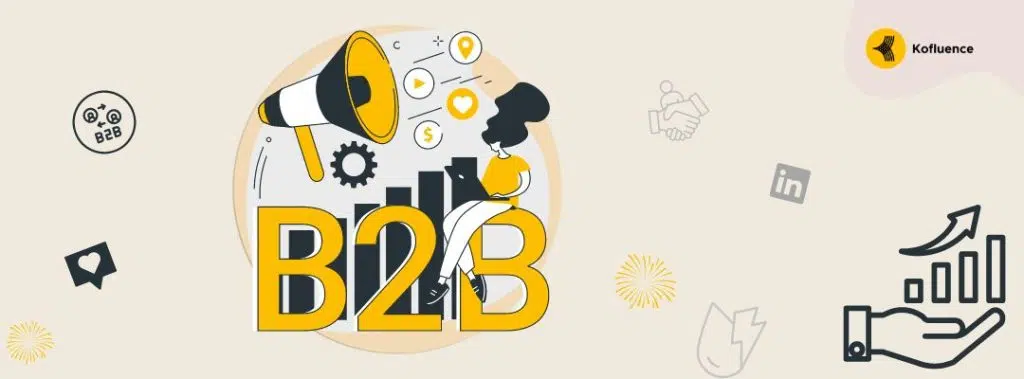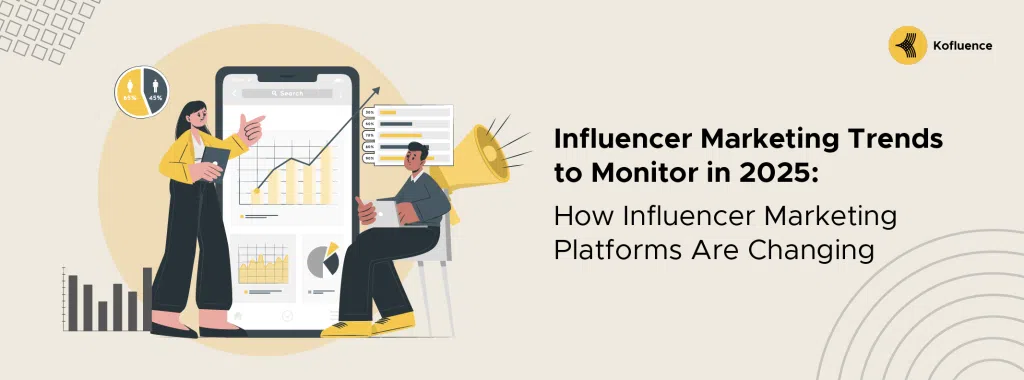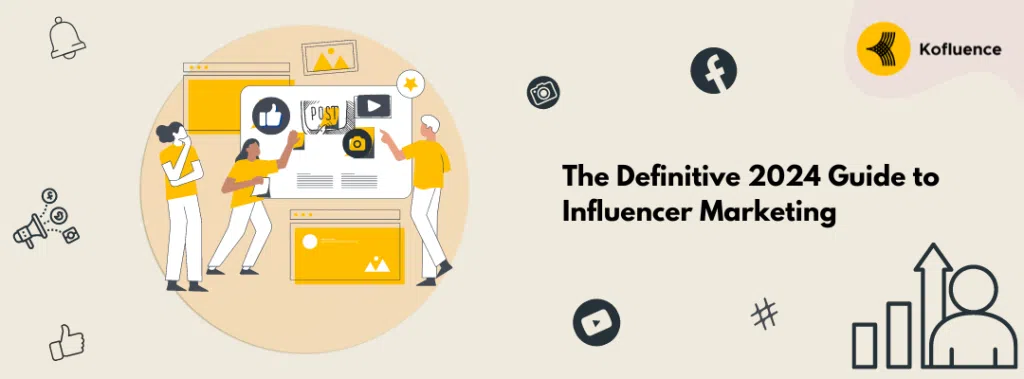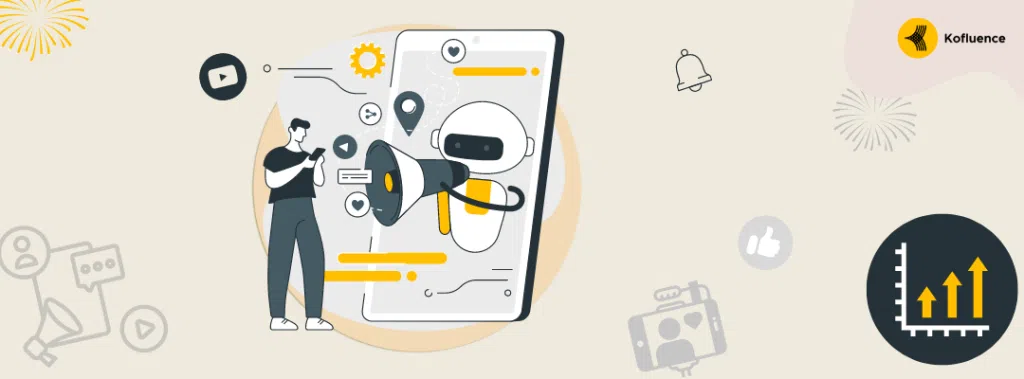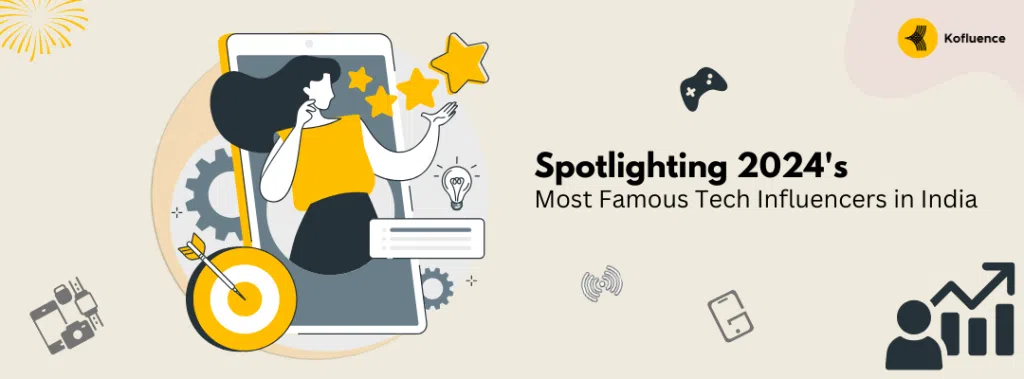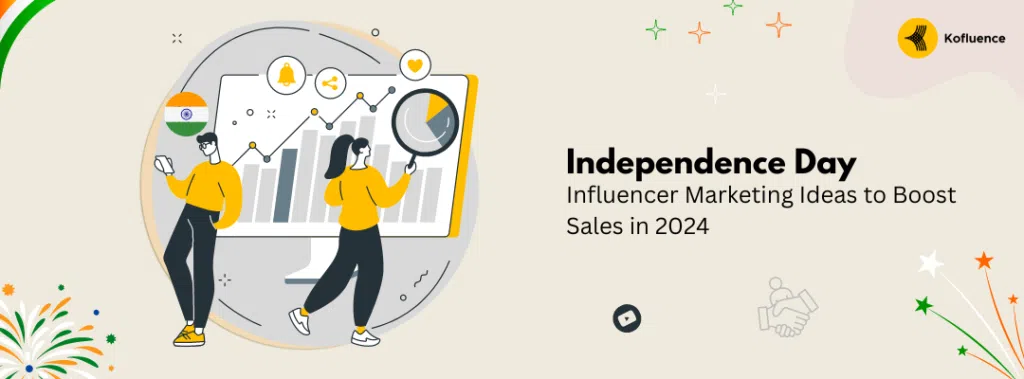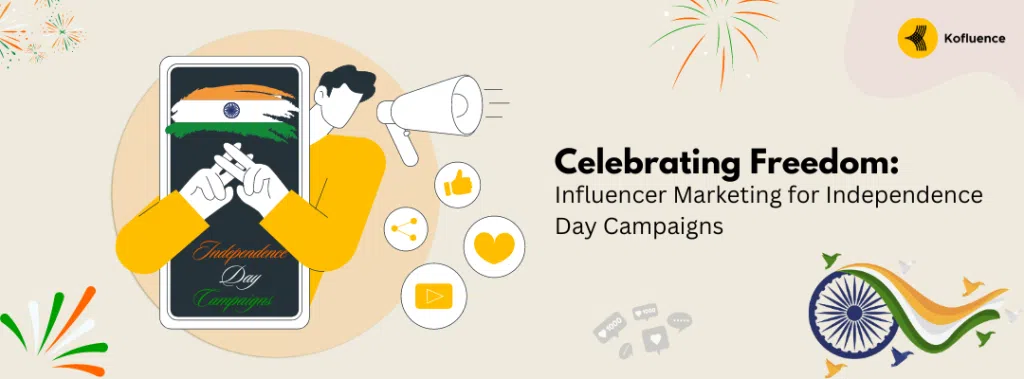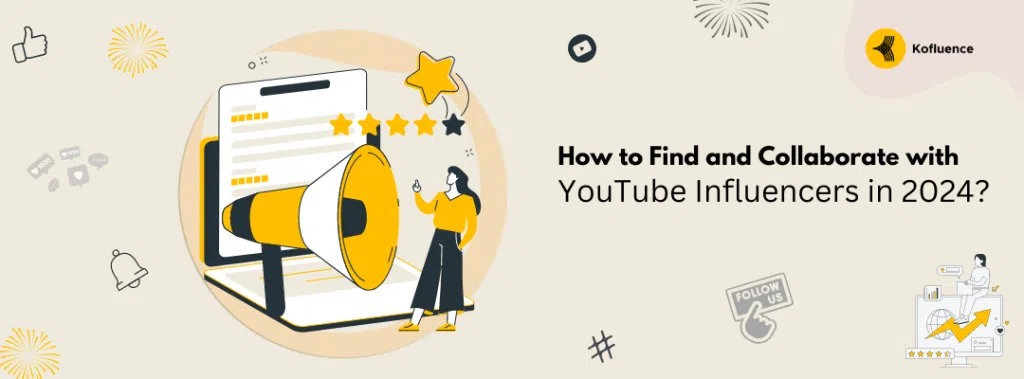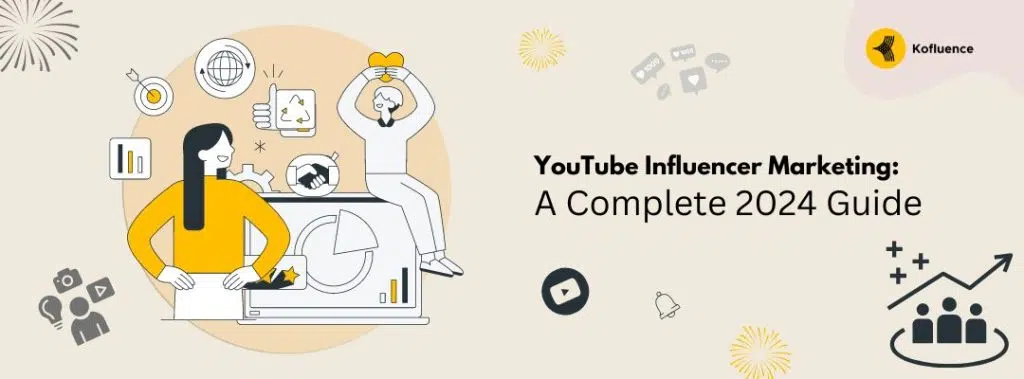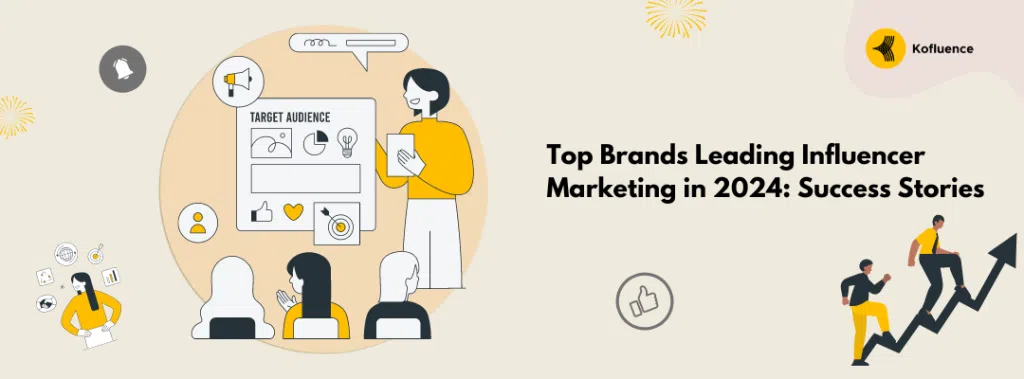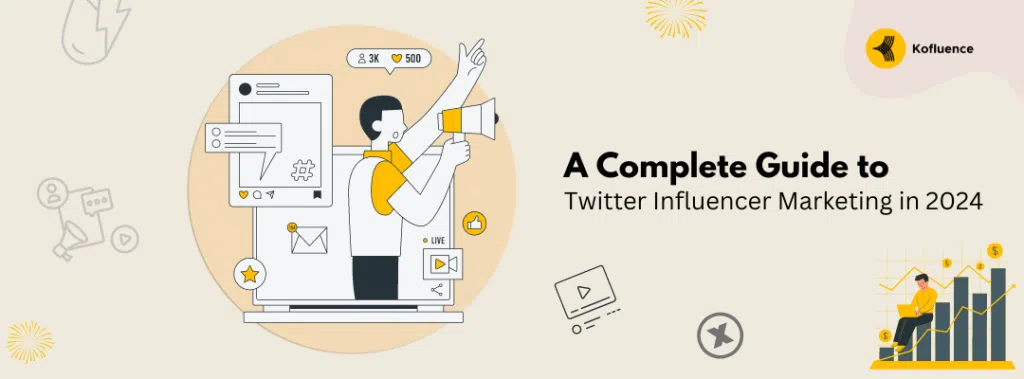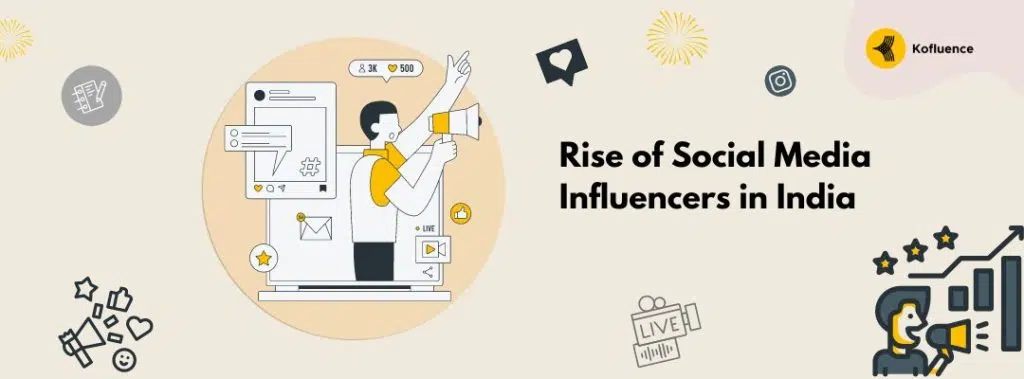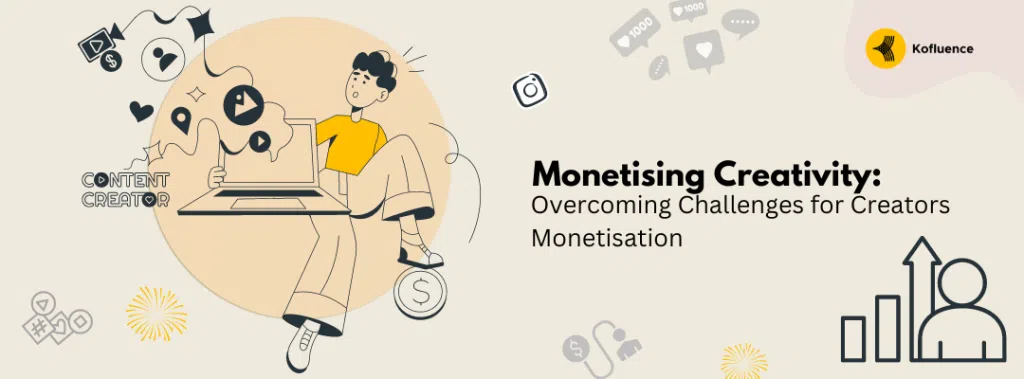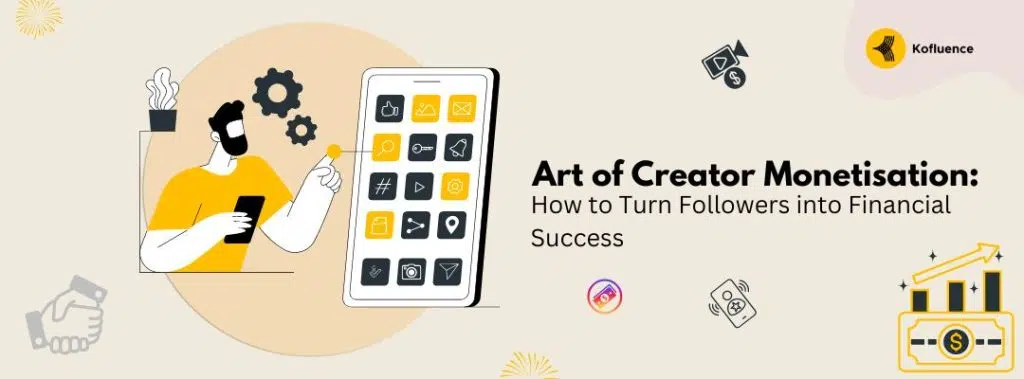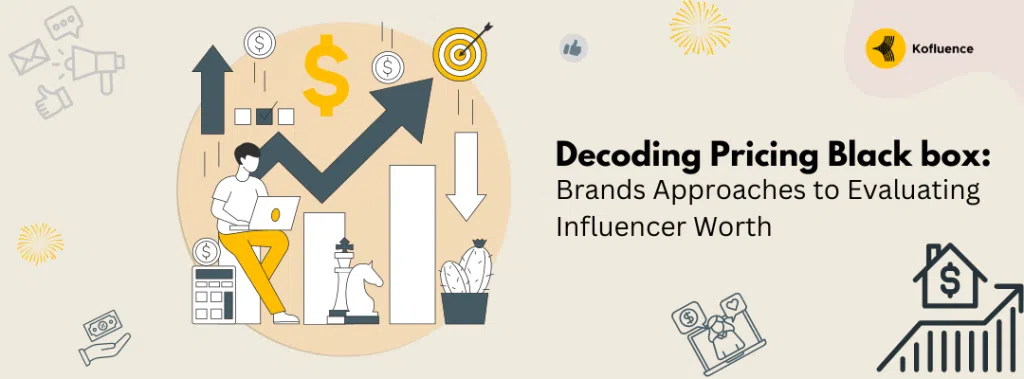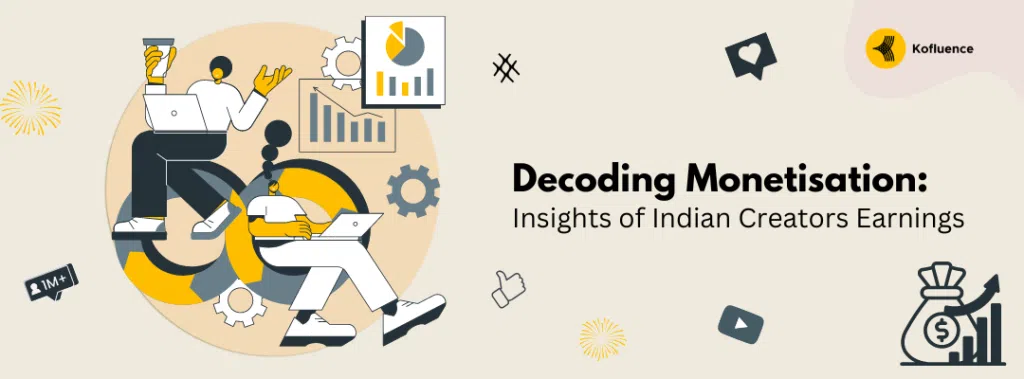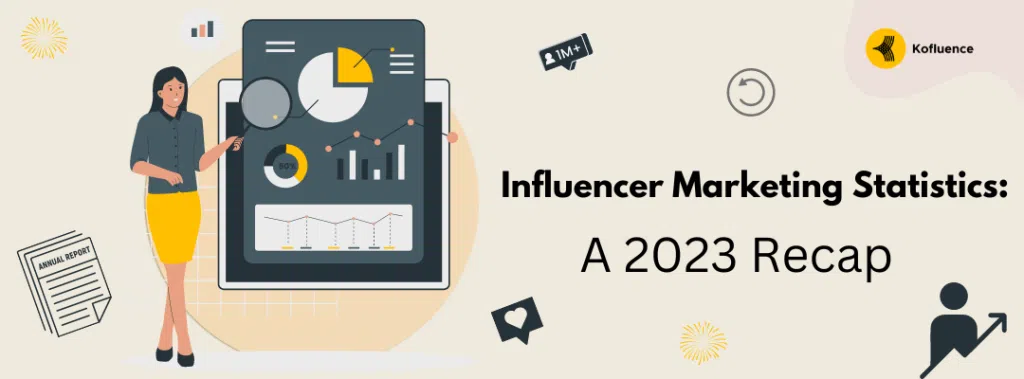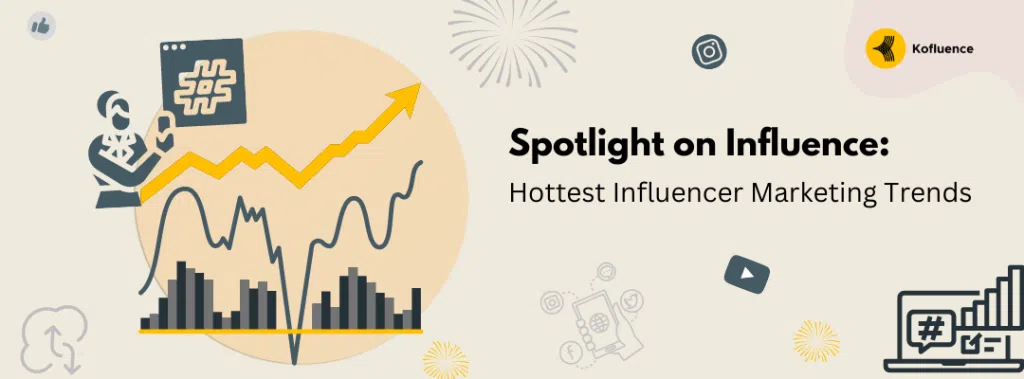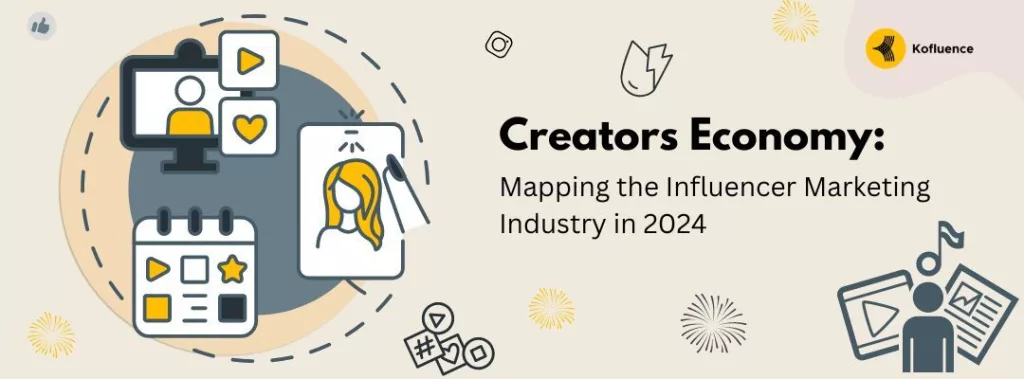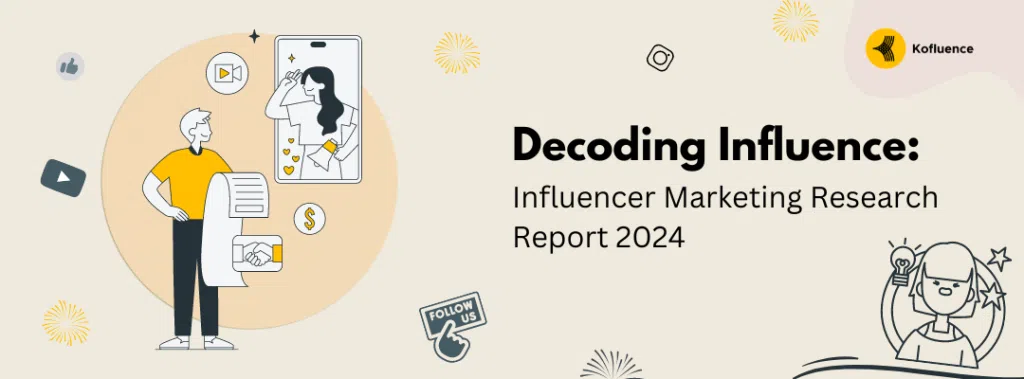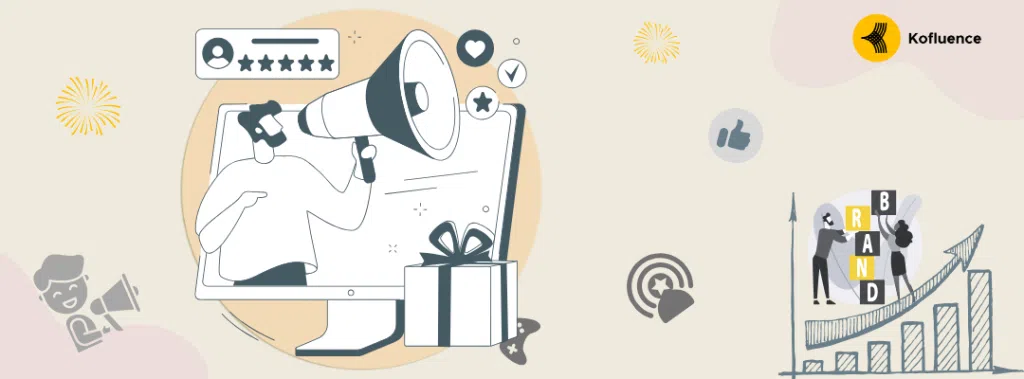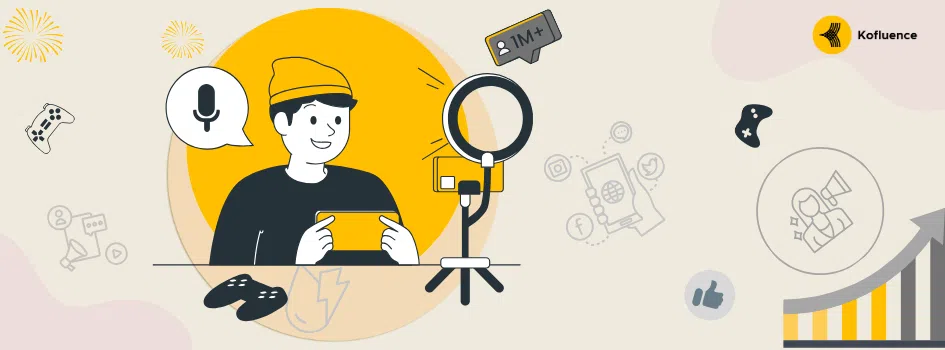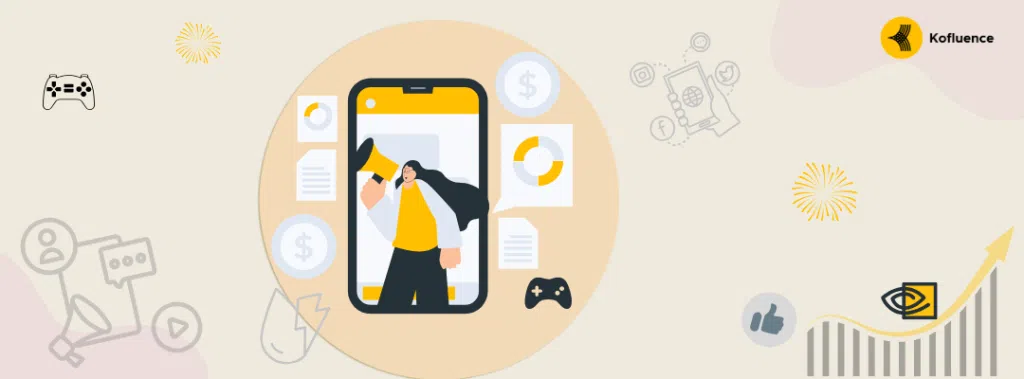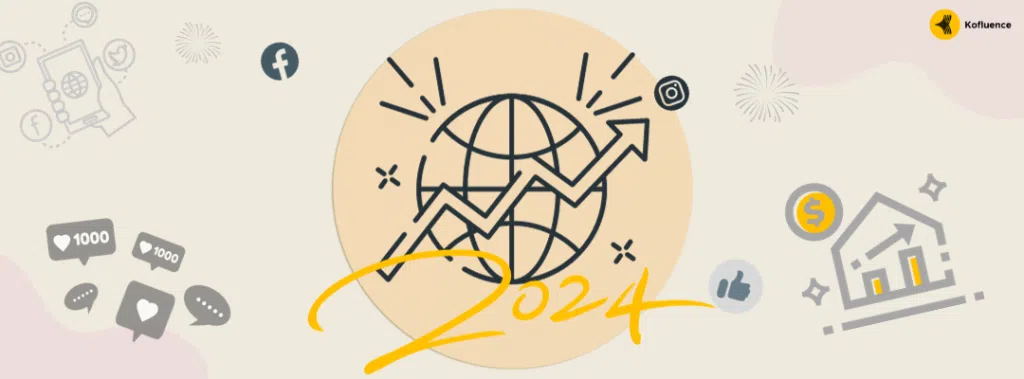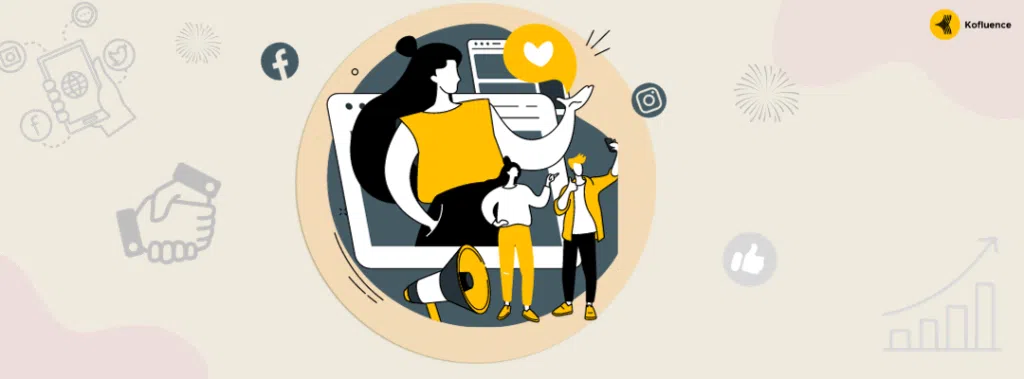Introduction
Understanding B2B Influencer Marketing
Conclusion
FAQ’s
| Did you know?
The Kofluence 2024 influencer marketing report findings highlights that India has a creator economy with 3.5 million content creators, over 170K monetizing YouTube creators, and e-commerce leading spending by 27% followed by FMCG at 20% capitalizing on influencer marketing trends in 2024. |
Introduction
The world of B2B marketing is constantly changing, requiring unique approaches to catch the attention of decision-makers. In this context, B2B influencer marketing emerges as a dynamic strategy, providing a transformative avenue for firms to engage their audience, create authority, and accelerate growth.
Here, we will go deep into the world of B2B influencer marketing, examining its numerous benefits and demonstrating how it can transform your business strategy.
Understanding B2B Influencer Marketing
B2B influencer marketing represents a strategic collaboration between businesses, industry leaders, influencers, and experts; unlike its B2C counterpart, which often focuses on consumer products, B2B influencer marketing centres around professional relationships and specialised knowledge. By leveraging the credibility and reach of influencers within specific niches, B2B brands can amplify their message and connect with their target audience more meaningfully.
. Building Trust and Credibility
Trust is the cornerstone of B2B relationships, and influencer marketing offers a unique avenue for building and reinforcing trust. With their established authority and expertise, influencers serve as trusted voices within their respective industries. When they endorse a product or service, their audience perceives it as a credible recommendation, fostering trust in the brand. By aligning with reputable social media influencers, B2B brands can leverage their credibility to enhance their reputation and credibility, strengthening their market position. With its campaign management tools, influencer marketing platforms like Kofluence let brands plan and execute their campaigns from start to finish.
. Expanding Reach and Visibility
In the digital age, attention is scarce, and reaching target audiences amidst the noise of competing messages can be challenging. Influencer marketing B2B, with their engaged followings across various online platforms, offers a gateway to expanded reach and visibility. By partnering with influencers who resonate with their target audience, B2B brands can tap into existing communities and amplify their message to a broader audience. Whether through sponsored content, guest appearances, or collaborative projects, influencer partnerships enable brands to extend their reach beyond traditional marketing channels and connect with potential customers where they are most active.
. Driving Leadership and Innovation
Influencers are often at the forefront of industry trends and innovations, serving as catalysts for change and thought leaders within their domains. Collaborating with influencers provides B2B brands with invaluable insights, perspectives, and expertise that can fuel their thought leadership initiatives. By aligning with influencers shaping industry conversations, brands can position themselves as innovators and thought leaders, driving meaningful discussions and shaping the narrative within their respective industries.
. Facilitating Relationship Building and Networking
Beyond the immediate benefits of increased reach and credibility, influencer marketing for B2B also fosters long-term relationships and networking opportunities. Influencer partnerships are not one-off transactions but ongoing collaborations that enable brands to forge meaningful connections with industry influencers and stakeholders. By nurturing these relationships over time, B2B brands can cultivate a network of advocates willing to champion their brand, provide valuable insights, and facilitate strategic partnerships. These relationships enhance brand visibility and open doors to new opportunities and collaborations within the industry.
. Measuring Impact and ROI
As with any marketing strategy, measuring the impact and return on investment (ROI) of B2B influencer marketing is essential for assessing its effectiveness and optimising future campaigns. Fortunately, the digital nature of B2B influencers in India lends itself to robust tracking and analytics, enabling brands to monitor key performance indicators (KPIs) such as reach, engagement, website traffic, lead generation, and conversion rates. By analysing these metrics, brands can gain valuable insights into the effectiveness of their influencer partnerships and refine their strategies for maximum impact and ROI.
. Enhancing Content Strategy
Influencers bring a wealth of creativity and expertise, making them invaluable collaborators in content creation. By partnering with influencers, B2B brands can diversify their content strategy, infusing it with fresh perspectives, insights, and storytelling techniques. Whether through guest blog posts, social media takeovers, or co-created multimedia content, influencer collaborations can breathe new life into your content strategy, making it more engaging and resonant with your target audience.
. Leveraging Niche Expertise
Influencers often specialise in specific niches or verticals, making them valuable sources of niche expertise and insights. B2B brands can leverage their specialised knowledge to create more relevant and targeted marketing campaigns by partnering with influencers who deeply understand your industry or target market. Whether addressing pain points, addressing industry challenges, or showcasing product features, influencers can provide valuable context and perspective that resonates with your audience.
. Generating User-Generated Content (UGC)
User-generated content (UGC) has become a powerful marketing tool in recent years, with consumers placing greater trust in content created by their peers. Influencers, with their engaged followers and authentic voices, are adept at generating UGC that resonates with their audience. By encouraging B2B Influencers for your brand to create and share user-generated content featuring your products or services, B2B brands can leverage the power of peer-to-peer recommendations and social proof to drive engagement and conversions.
. Facilitating Employee Advocacy
Influencer marketing doesn’t have to be limited to external partnerships; it can also extend to internal stakeholders, including employees. Employee advocacy programs empower employees to become brand ambassadors and share company content with their networks. By equipping employees with the tools and resources to amplify your brand message, B2B brands can leverage their collective influence to reach new audiences and drive brand awareness. Influencers can play a role in facilitating employee advocacy by providing training, content, and incentives to encourage participation.
Conclusion
B2B influencer marketing offers a transformative approach for businesses to engage their audience, establish authority, and drive growth in today’s competitive marketplace. By leveraging the credibility and reach of influencers, brands can build trust, expand their reach, drive thought leadership, facilitate relationship building, and achieve measurable ROI. As the digital landscape evolves, embracing B2B enterprise marketers can position your business for sustained success and growth in B2B influencer marketing.
If you found this blog helpful, browse through our website for other blogs on similar topics, or get in touch with us for your next influencer marketing campaign! Download the Kofluence app and find relevant campaigns catering to your target audience! To opt-in, download the Kofluence app here: iOS users and Android users
FAQ’s
. What are the best practices for engaging with B2B influencer marketing?
B2B influencer marketing involves trust and long-term partnerships. Engaging with it involves strategic collaboration to boost brand visibility and credibility. Building relationships with industry leaders who align with your goals and audience is crucial. Co-creating compelling content, such as webinars and expert interviews, educates and engages simultaneously. By using social media platforms like LinkedIn or Instagram to engage influencers, their views and comments can extend your reach. Additionally, consider using influencer marketing platform like Kofluence to find the right B2B influencers for your brand.
. Why is influencer marketing essential in the B2B sector?
B2B influencer marketing has several reasons. One is that it allows brands to gain the credibility and expertise of influential figures within a specific industry. These influencers can help establish the brand as a thought leader and build trust among professional audiences. Second, influencer marketing expands reach, connecting with potential customers who follow these industry experts. Third, it provides a more authentic way to promote products and services, utilising personal endorsements. Overall, B2B influencer marketing creates meaningful relationships and boosts brand awareness, making it an essential strategy.
. Can small businesses gain benefits from B2B influencer marketing?
Yes, small businesses can provide several benefits to B2B influencer marketing. Businesses may uncover opportunities by collaborating with industry experts. For example, an influencer’s credibility increases trust with new audiences while introducing the offers to the influencer’s followers can launch the brand into the market. Furthermore, influencer collaborations provide access to niche networks, creating a networking goldmine. Collaboration with influencers also offers new insights, establishing the brands as a beacon of thought leadership. While LinkedIn is the critical platform for B2B influencers, other social networks can also be effective. As a result, it’s critical to look for the ideal partners with influencer management solutions.

